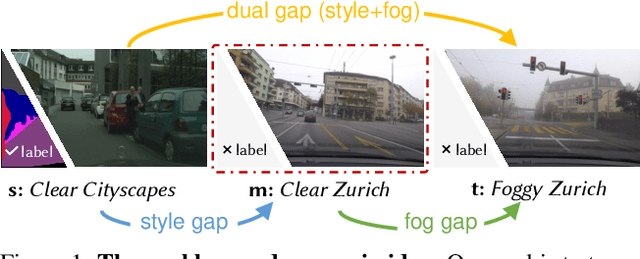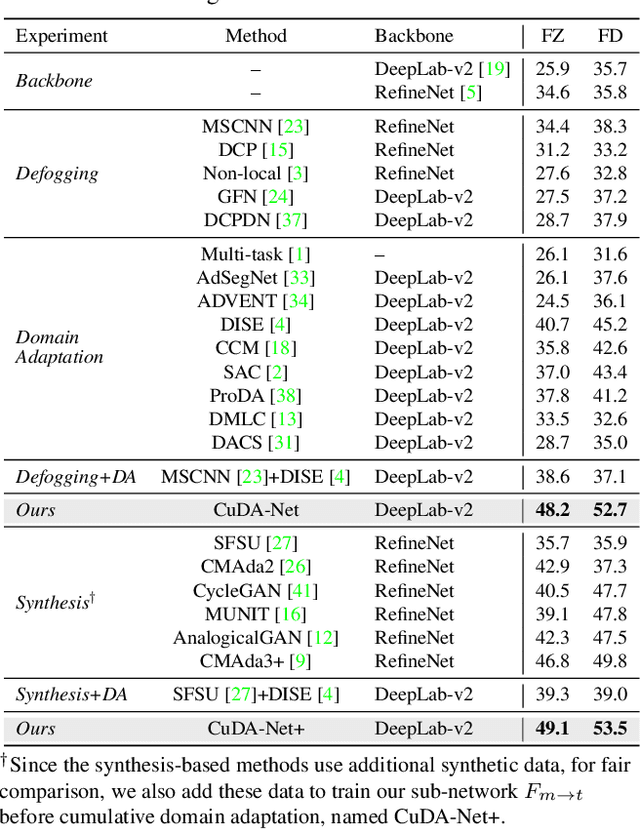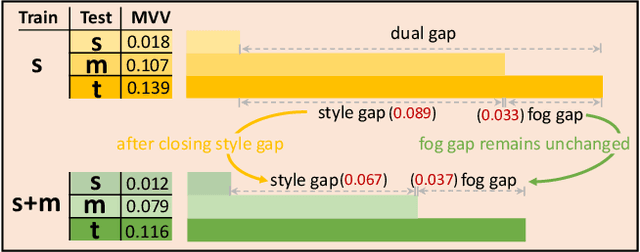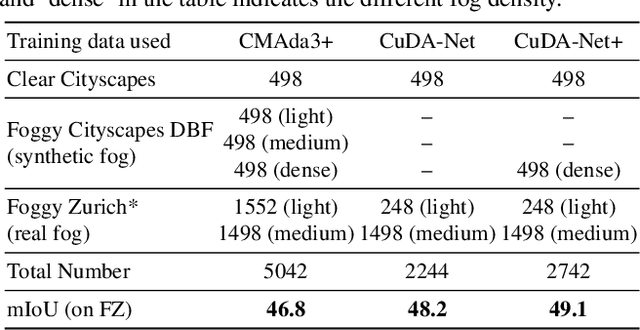Yacheng Zhan
Both Style and Fog Matter: Cumulative Domain Adaptation for Semantic Foggy Scene Understanding
Dec 01, 2021



Abstract:Although considerable progress has been made in semantic scene understanding under clear weather, it is still a tough problem under adverse weather conditions, such as dense fog, due to the uncertainty caused by imperfect observations. Besides, difficulties in collecting and labeling foggy images hinder the progress of this field. Considering the success in semantic scene understanding under clear weather, we think it is reasonable to transfer knowledge learned from clear images to the foggy domain. As such, the problem becomes to bridge the domain gap between clear images and foggy images. Unlike previous methods that mainly focus on closing the domain gap caused by fog -- defogging the foggy images or fogging the clear images, we propose to alleviate the domain gap by considering fog influence and style variation simultaneously. The motivation is based on our finding that the style-related gap and the fog-related gap can be divided and closed respectively, by adding an intermediate domain. Thus, we propose a new pipeline to cumulatively adapt style, fog and the dual-factor (style and fog). Specifically, we devise a unified framework to disentangle the style factor and the fog factor separately, and then the dual-factor from images in different domains. Furthermore, we collaborate the disentanglement of three factors with a novel cumulative loss to thoroughly disentangle these three factors. Our method achieves the state-of-the-art performance on three benchmarks and shows generalization ability in rainy and snowy scenes.
 Add to Chrome
Add to Chrome Add to Firefox
Add to Firefox Add to Edge
Add to Edge